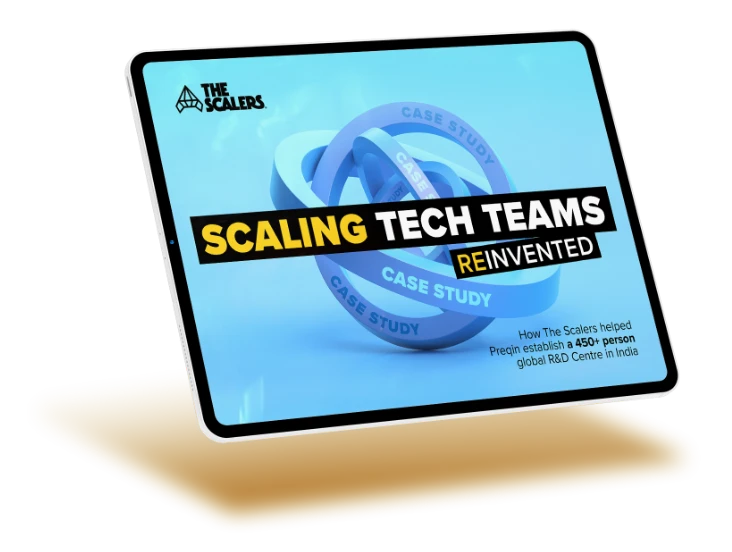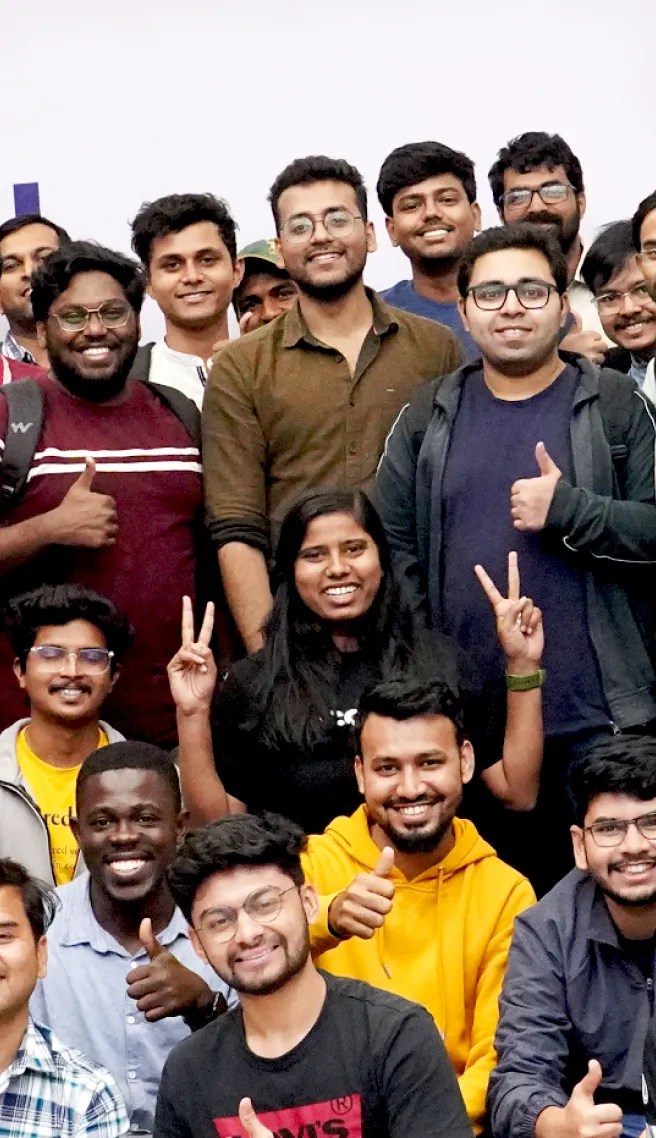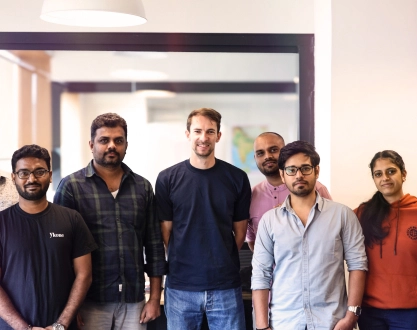MARTECH SOFTWARE TEAM Increase the ROI of development
Marketing technology is a constant battle to deliver the right message, at the right time, to the right person. Leverage the latest technology advancements, stay ahead of regulation, and prevent security threats with a dedicated team of top experts. We’ll find, manage, and scale a cost-optimal team of MarTech experts from Bangalore’s vast talent pool of engineers and marketing experts, fully integrated with your company and culture.

By building an offshore team in the “Silicon Valley of Asia”, you can scale a team of experts in any skill or role you need.
Get more from your hiring budget and take advantage of the lower overheads in Bangalore, India, to deliver value to users faster.
Manage your offshore team just like your in-house team. Use the same systems and workflows for complete visibility and management.
SECTOR EXPERTISE Custom-built MarTech engineering teams

Advertising Technology (AdTech)

Influencer Marketing

Mobile Marketing

Omnichannel Marketing

Content Marketing

Social Media

Marketing Automation

Marketing Analytics

How we helped Preqin establish a 450+ person global R&D centre in India
DOWNLOAD CASE STUDY Scaling innovation: Preqin case studyRICH TALENT POOL Bangalore: MarTech talent hub
HubSpot, Zoom, Konnect, Zoho, VWO — these are just a few of the MarTech giants who have development centres in Bangalore, sometimes known as the “Silicon Valley of Asia”. Our 7-step recruitment process secures the top 2% of Bangalore’s more than 2 million tech talent pool, and our unique model means you get a team that’s truly yours. Your employees, your systems, your culture. So you can scale fast and scale sustainably.

WHY CHOOSE THE SCALERS The smarter way to scale
Our unique model gives you a team in India so good it feels in-house. And we handle all the hassle.
We speak to 100 candidates for every position, and test them against your specific requirements, so you only get the best.
Your team gets regular engagement and team building activities, so you get happy employees who stay an average of 3-5 years.
Our turnkey recruitment process gets the top 2% talent from Bangalore’s 2M+ talent pool, so you can scale whenever you need.
MARTECH SOFTWARE SOLUTIONS Your dedicated offshore team can help you with
Create custom marketing and advertising platforms to increase you and your partners’ reach. Connect with influencers, optimise ad campaigns, and automate marketing tasks to drive engagement and ROI.
Make data-driven marketing decisions with custom data analytics and visualisation solutions. Your dedicated team can integrate data sources and make beautiful dashboards.
Increase customer lifetime value and drive engagement with a custom-developed CRM solution. Your single source of truth will enable personalised outreach and performance tracking.
Deliver the right content to the right user at the right time with a custom digital content and distribution solution. Whether you’re looking for a platform-specific solution like email or aiming for omnichannel marketing, your dedicated team can create a solution.
Unlock hidden value by collecting, processing, and analysing large volumes of marketing data. Spot trends and optimise your campaigns with the insights gleaned from your team.
Create solutions to leverage word of mouth and referral marketing. Your team can create a marketing software solution to facilitate relationships, track performance and automate commissions.
Increase engagement, brand loyalty, and lifetime value with custom-developed AI chatbots. Provide instant replies and personalised recommendations so users know, like, and trust your brand.
Create a new media platform, or develop services that tie into existing ones like Facebook, Instagram, Reddit and Snapchat via their APIs. Whether you’re looking to build a social media giant, hyper-niche network, or marketing service, we’ll build you a team that can deliver.
Looking to build other solutions?
FEATURED CASE STUDIES We build the best MarTech teams
We were struggling to find talented developers in Paris, but we found them in Bangalore with The Scalers. Our partnership is now in its sixth year, and it’s amazing to see how far they have pushed our business forward.

























